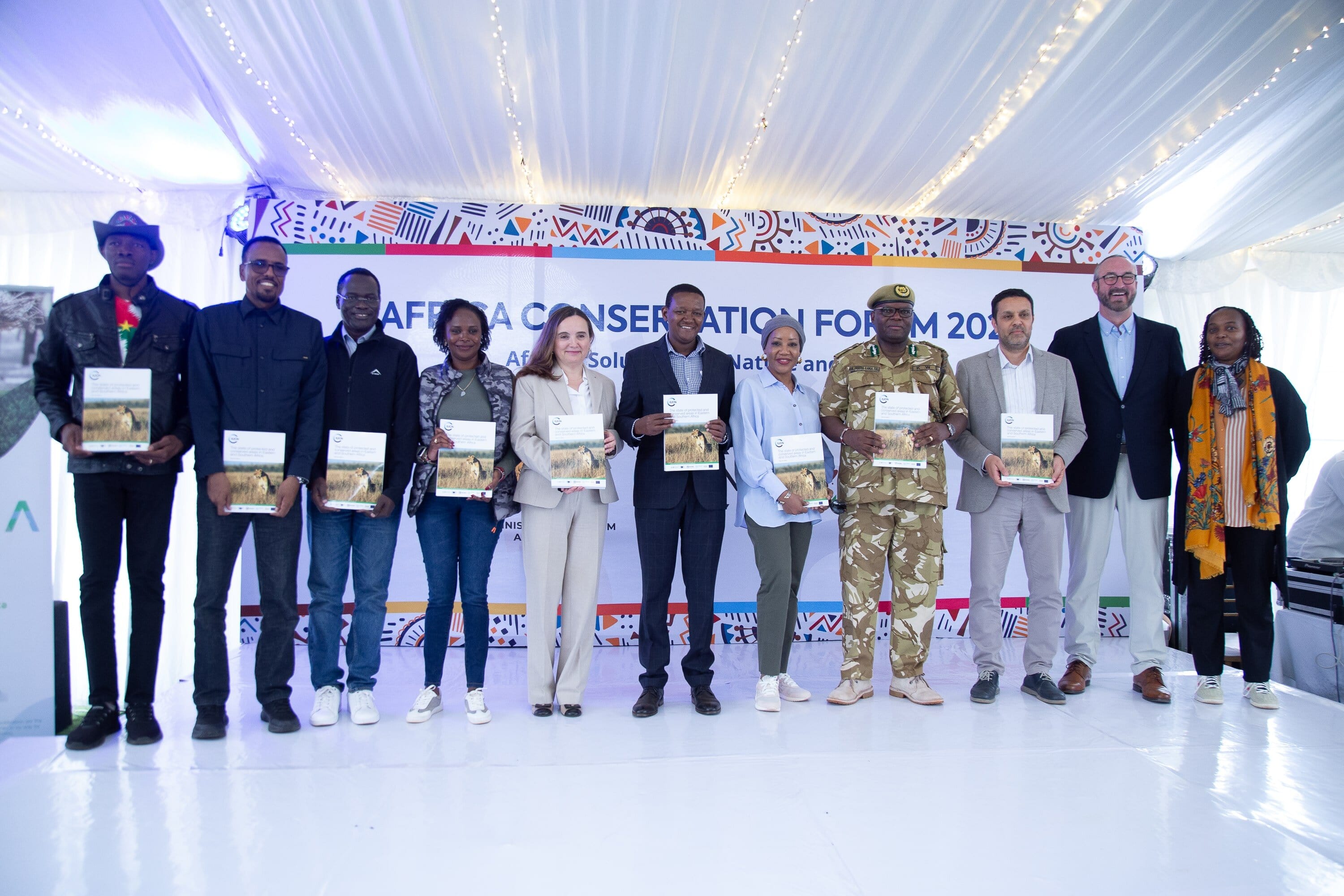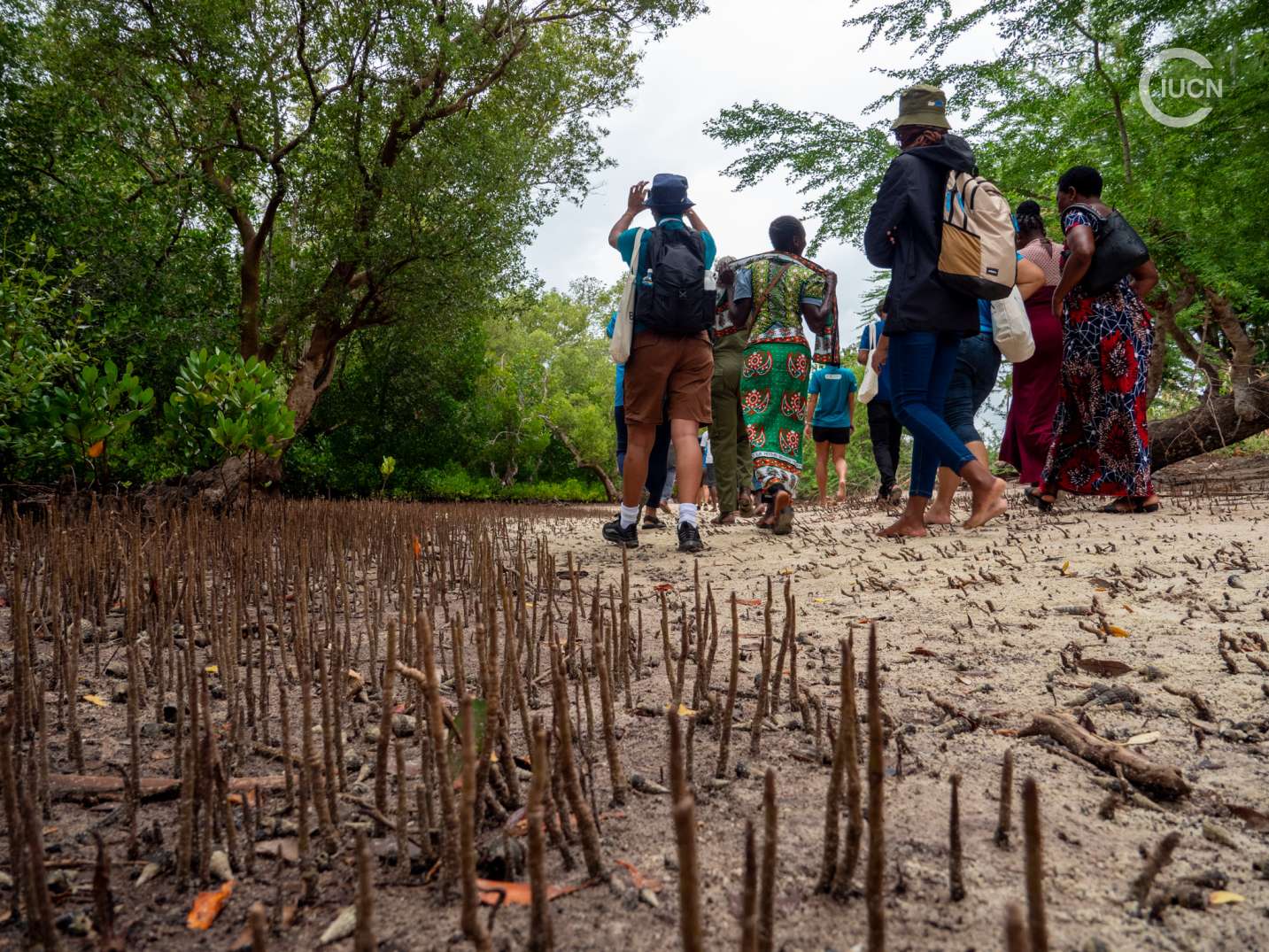IUCN mobilised to support SCBD and OIF in revising National Biodiversity Action Plans for French- and English-speaking countries
For Ineet Nicky, CBD National Focal Point for the Democratic Republic of Congo (DRC), “The dialogue on updating National Biodiversity Strategies and Action Plans (NBSAPs) is a great opportunity to take stock of what has already been achieved, and to look ahead to the next stages up to COP16, scheduled for October this year in Cali, Colombia”.
 Participants in the Secretariat of the Convention on Biological Diversity's (CBD) four-day dialogue in Nairobi, Kenya, which opened on 30 May 2024.
Photo: IUCN
Participants in the Secretariat of the Convention on Biological Diversity's (CBD) four-day dialogue in Nairobi, Kenya, which opened on 30 May 2024.
Photo: IUCN
Organised by the Secretariat of the Convention on Biological Diversity (CBD), this four-day dialogue, which opened in Nairobi on 30 May 2024, aims to facilitate the establishment of national targets and the alignment of NBSAPs with the Global Framework. Specifically, this will involve: (i) Supporting national efforts to revise national targets, (ii) Facilitating the appropriation of relevant approaches and tools for aligning NBSAPs, (iii) Building capacity for integrating the provisions of the Convention's Protocols into the Global Framework, (iv) Facilitating the development of a national monitoring plan, (v) Supporting country efforts in planning capacity building, and (vi) Building country capacity in planning the mobilisation of biodiversity finance.
In addition to IUCN, other partners involved in the dialogue include the United Nations Environment Programme (UNEP), the United Nations Development Programme (UNDP), the German Development Cooperation Agency (GIZ), Francophonie Institute for Sustainable Development (OIF-IFFD), and the African Union (AU) Commission.
In 2020, IUCN Members adopted Resolution 7.043 entitled "Enhancing implementation of the Convention on Biological Diversity through National Biodiversity Strategies and Action Plans (NBSAPs)". In it, the IUCN Director General is requested, “Within the context and remit of the IUCN Programme 2021-2024 to promote the development of a financial mechanism to support the development and implementation of NBSAPs; and develop global strategies for collaboration and technology transfer, and to provide training to assist in capacity building for implementation of established NBSAPs by all stakeholders”.
As a leading provider of biodiversity knowledge, tools, and standards that help conservation planning, IUCN has a lot to offer to the NBSAPs process.
IUCN ‘brochure’ mapping of IUCN’s knowledge products and their uses in the NBSAPs development/revision process was shared with parties and working group sessions, and mentioned the use of the IUCN Green List as the global standard for protected and conserved areas, including OECMs, to map parties’ contribution to GBF Target 3 in some countries.
In DRC, IUCN established an Expert Assessment Group of the Green List (EAGL), which is currently assessing a selected list of Protected and Conserved Areas including OECMs as well as supporting elaboration of the national strategy on Target 3. Further, one of the aims of the IUCN Green List Standard is to provide a pathway towards the recognition and support of diverse areas that achieve effective area-based conservation. The Green List Standard provides a pathway to assess and strengthen OECMs; allows its effective assessment; and provides data evidence regarding weaknesses and gaps concerning the quality of management, planning, and governance to be addressed through customised recommendations towards excellent conservation outcomes.
For more information, contact: Aissa TRAORE, Programme Officer, IUCN Global Protected and Conserved Areas team.



